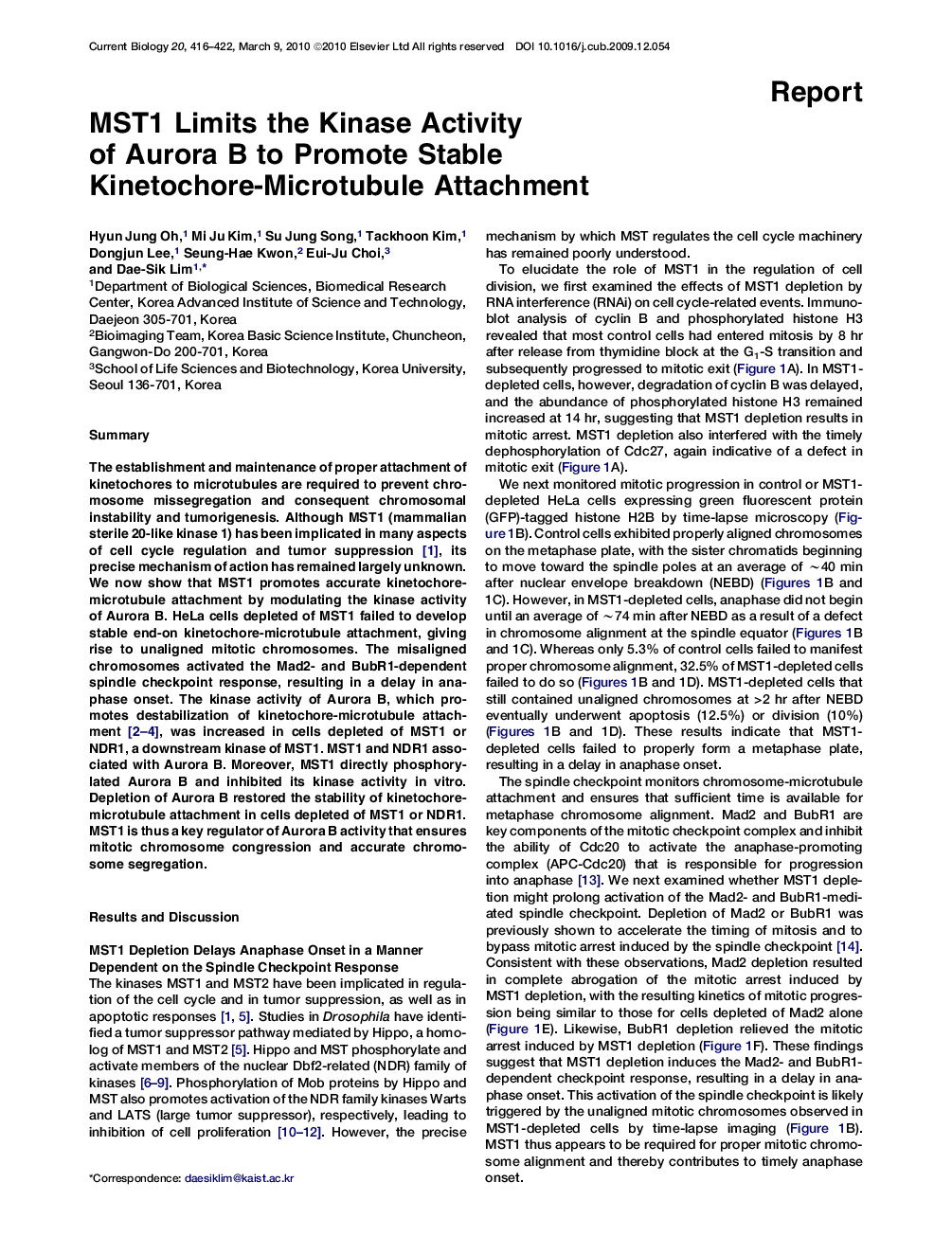| Article ID | Journal | Published Year | Pages | File Type |
|---|---|---|---|---|
| 2043150 | Current Biology | 2010 | 7 Pages |
SummaryThe establishment and maintenance of proper attachment of kinetochores to microtubules are required to prevent chromosome missegregation and consequent chromosomal instability and tumorigenesis. Although MST1 (mammalian sterile 20-like kinase 1) has been implicated in many aspects of cell cycle regulation and tumor suppression [1], its precise mechanism of action has remained largely unknown. We now show that MST1 promotes accurate kinetochore-microtubule attachment by modulating the kinase activity of Aurora B. HeLa cells depleted of MST1 failed to develop stable end-on kinetochore-microtubule attachment, giving rise to unaligned mitotic chromosomes. The misaligned chromosomes activated the Mad2- and BubR1-dependent spindle checkpoint response, resulting in a delay in anaphase onset. The kinase activity of Aurora B, which promotes destabilization of kinetochore-microtubule attachment 2, 3 and 4, was increased in cells depleted of MST1 or NDR1, a downstream kinase of MST1. MST1 and NDR1 associated with Aurora B. Moreover, MST1 directly phosphorylated Aurora B and inhibited its kinase activity in vitro. Depletion of Aurora B restored the stability of kinetochore-microtubule attachment in cells depleted of MST1 or NDR1. MST1 is thus a key regulator of Aurora B activity that ensures mitotic chromosome congression and accurate chromosome segregation.
► Depletion of MST1 impairs the formation of stable kinetochore-microtubule attachment ► Aurora B activity is increased by depletion of MST1 or NDR1 ► MST1 directly phosphorylates Aurora B and thereby inhibits its hyperactivation ► The precise regulation of Aurora B by MST1 ensures mitotic chromosome congression
